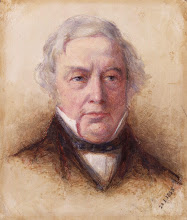BILL OF RIGHTS PART 3
It is unfortunate that the debate over this issue is being framed by announcements in the media as a battle between big corporations and regular citizens. There are thousands of small business people, wage earners, retirees, and others who oppose this amendment because they find it against their interests. So be careful not to be caught up in a fake bandwagon effect.
Moving on to another point, I am aware that many say the U.S. Constitution was designed at its conception largely as a support and protection for the privileged. But it is a living document and the past is not the present. Over time our country has become more enlightened, and through positive Supreme Court decisions, tragic sacrifice by citizens, and instances of progressive legislation we have advanced from those long ago times. Our society as it exists today is malleable, and through reason and hard work a positive future is in sight. I can not go along with burning the house down every time a fuse is blown or a drain plugged. I find this Bill both too much and too little.
My continuing commentary is now at the third whereas: "Whereas the people of the City of Spokane recognize their responsibility to be well-informed and involved citizens of the City of Spokane, to be stewards of the natural environment, and to assume the responsibility for enforcing their rights and the rights of others." This is a somewhat laughable formality that barely deserves comment. I will only say that I shudder a little when I read about someone being "responsible" for enforcing rights I may not even know I have.
"Whereas the people of the City of Spokane have adopted a Comprehensive Plan for the City of Spokane, which envisions the building of a healthy, sustainable, and democratic community, but the people recognize the Comprehensive Plan is not legally enforceable in many important respects; and whereas, the people of the City of Spokane wish to create a Community Bill of Rights, which would among other goals, establish legally enforceable rights and duties to implement the vision laid out in the Comprehensive Plan" Now we seem to be getting somewhere. Or are we? Is it all about making the Comprehensive Plan enforceable? Well, not quite. It is the vision we want to make enforceable. How does one enforce a vision? And why is the Comprehensive Plan itself not enforceable in some respects? I hear people claim it is enforceable. How can we make sense of this thing without really looking at the Plan and court cases regarding it? Is the average voter inclined to do this. I see a pattern here. We are again asked by the Bill's authors to agree with something without having all the facts.

